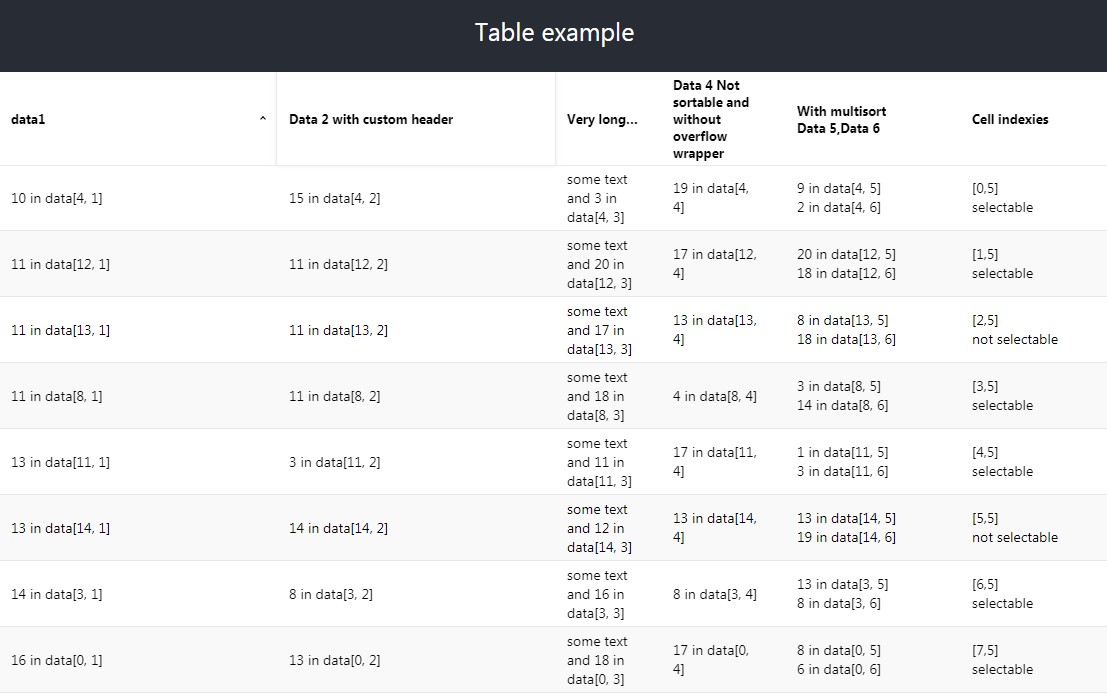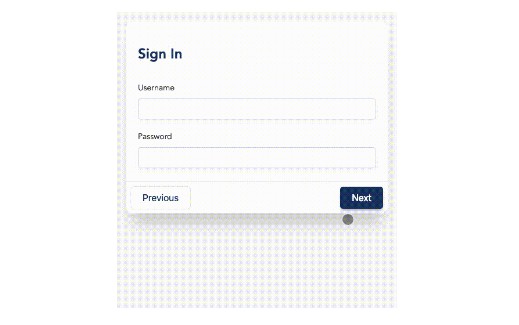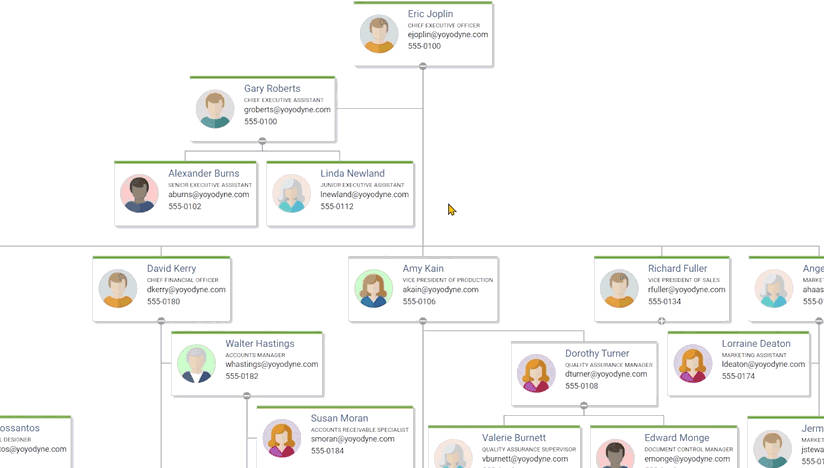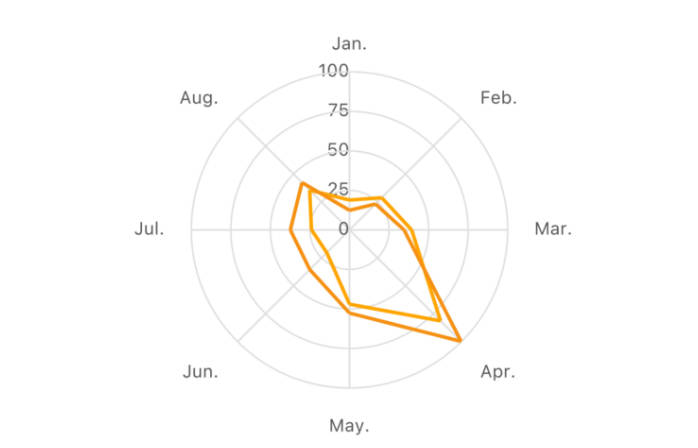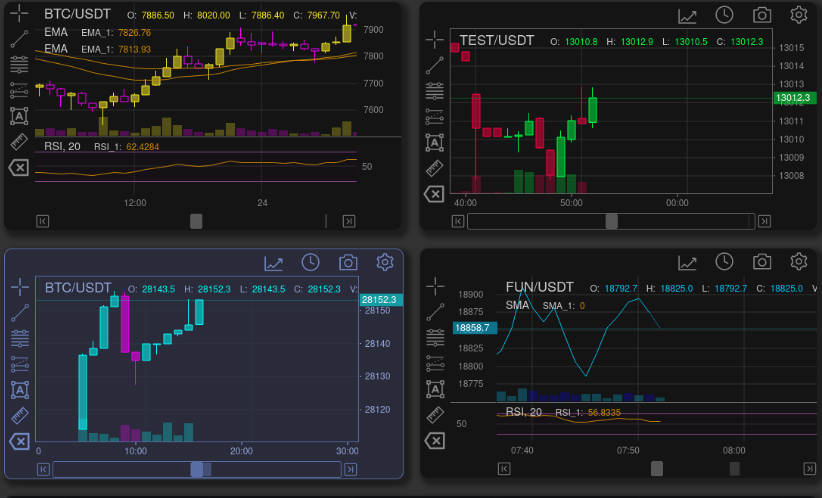React-VizGrammar
React VizGrammar is a wrapper around Victory JS and it makes charting easier by adding boilerplate code so that designers and developers can get started and set it up in a few minutes.
A chart can be embedded in a React environment simply by using the VizG react component.
A chart can be embedded in a React environment simply by using the VizG react component.
import VizG from 'react-vizgrammar';
<VizG config={config} data={data} metadata={metadata} />
Where the props?
configis the widget configurations specified as a JSON object.datais the array of data sets fed to the charts.metadatais the JSON object that contains information about the provided dataset.
Chart config prop
Users have to provide parameters for the widget using config object inorder to create the chart type they require. It is a JSON object that has a well defined configuration attributes to customize the chart.
Following is a basic configuration to plot a line chart,
let config = {
x : "rpm",
charts : [{type: "line", y : "torque", color: "EngineType"}],
maxLength: 10,
width: 400,
height: 200
}
metadata prop and data prop
Once the config is provided. User can provide a dataset to visualize the chart. For easy interpretation React-VizGrammar require this dataset to be arranged in a tabular way similar to the way explained below.
metadata = {
"names": ["Column1", "Column2",...],
"types": ['ordinal', 'linear',...]
};
metadata.names is an array consists of column names/fields of the table and metadata.types contains their types
(ordinal, time or linear), names and types are aligned together in a way that "Column1" => 'ordinal' and "Column2" => 'linear' and so on.
data = [
["value1", numericValue1,...],
["value2", numericValue2,...],
];
data collection of arrays of data rows. Single row is stored as an array and their element order follows the order of metadata.names.
Sample data table would be like following:
metadata = {
"names" : ["rpm","torque","horsepower", "EngineType"],
"types" : ["linear","linear", "ordinal","ordinal"]
};
data = [
[8000, 75, 120, "Piston"], [9000, 81, 130, "Rotary"]
];
Build Process
Prerequisites
- NPM
- Node
These prerequisites must be installed before proceeding with the build process.
Build the Library
In order build React-VizGrammar from the sources, Get a clone from this repository and then run the following commands in the terminal from the react-vizgrammar directory.
npm install
npm run build
Build and run samples
To build and start the dev-server and view the samples, inside the main directory run the following command afer installing the npm dependencies.
npm run samples

